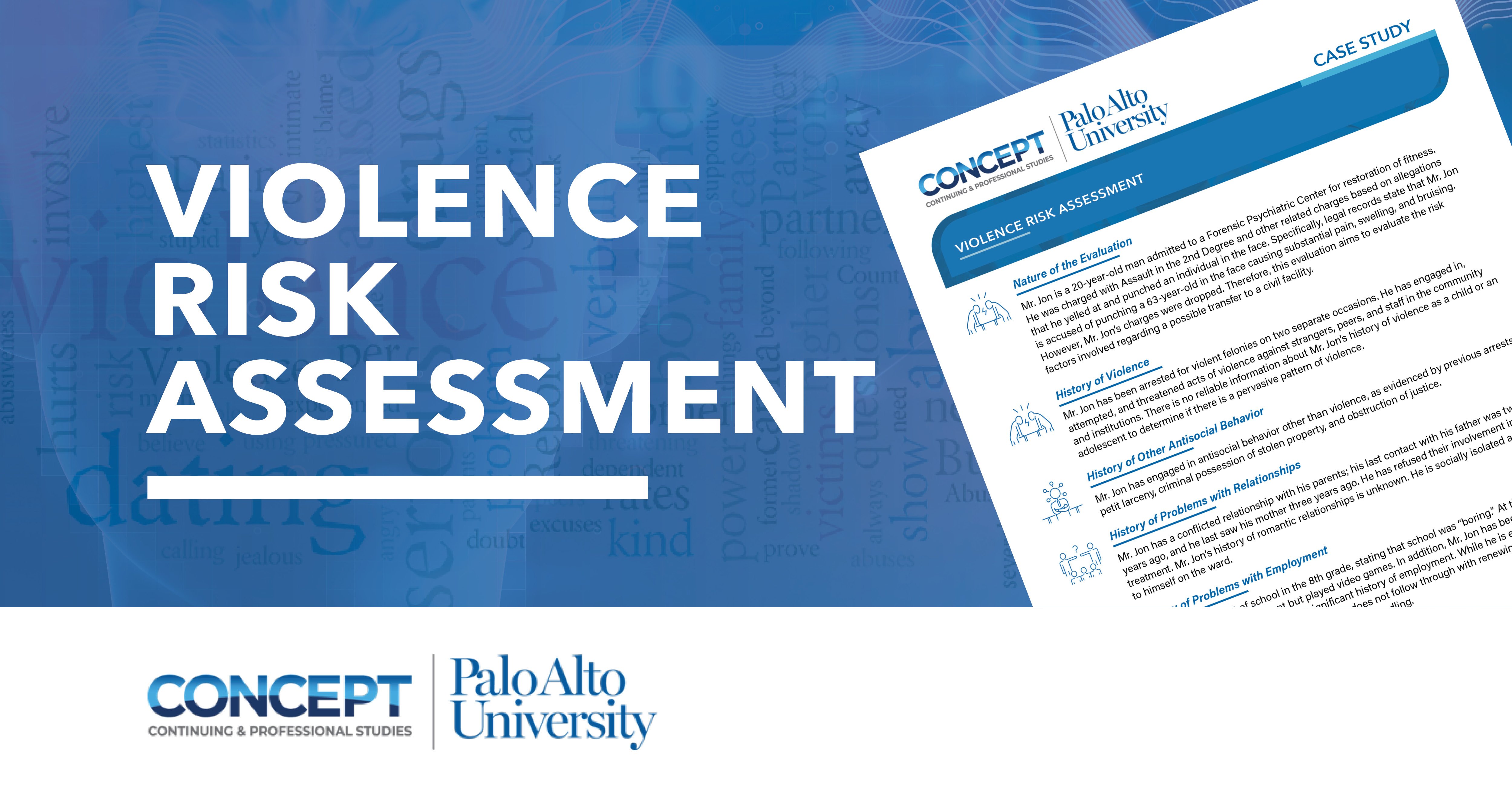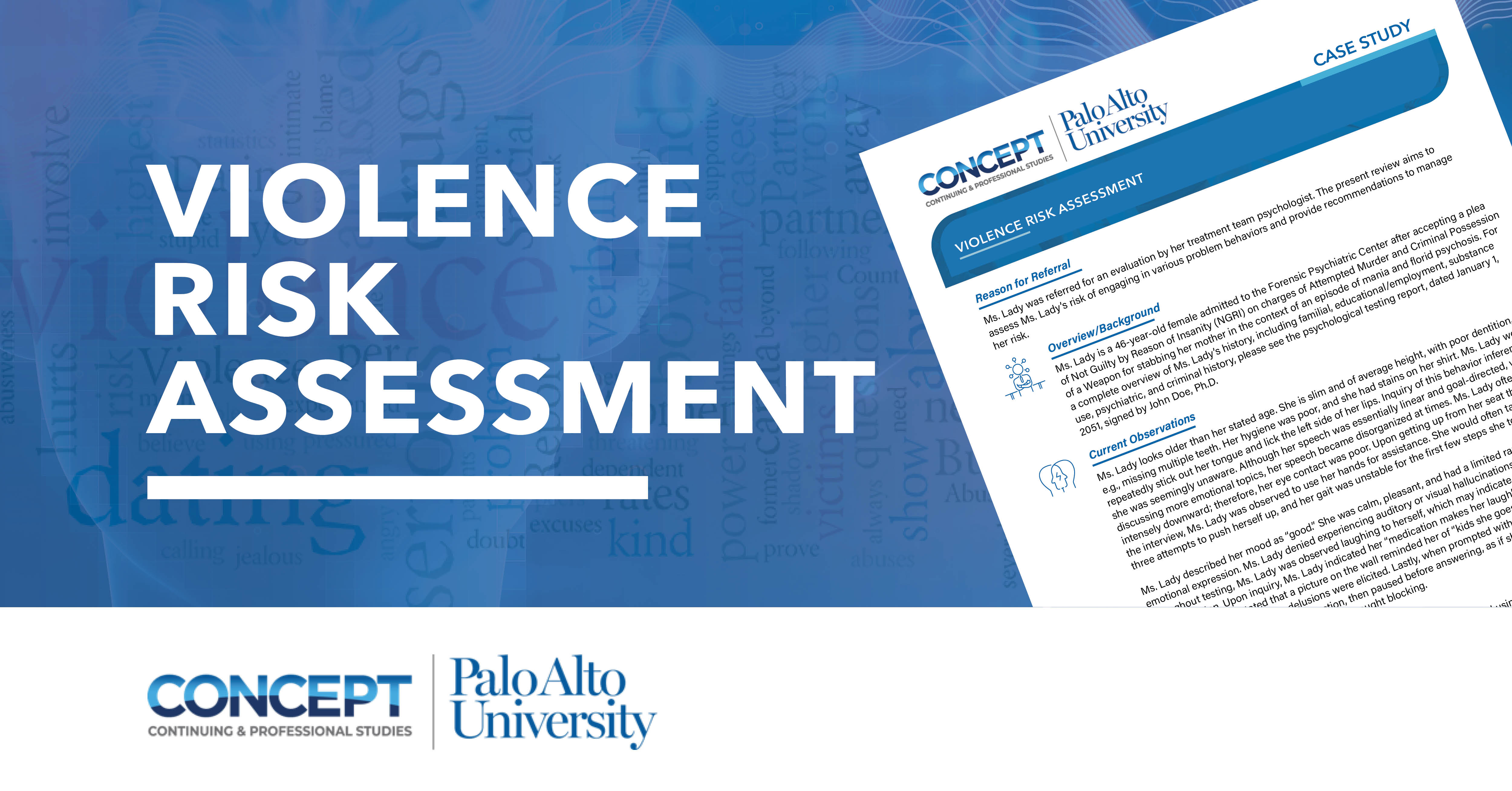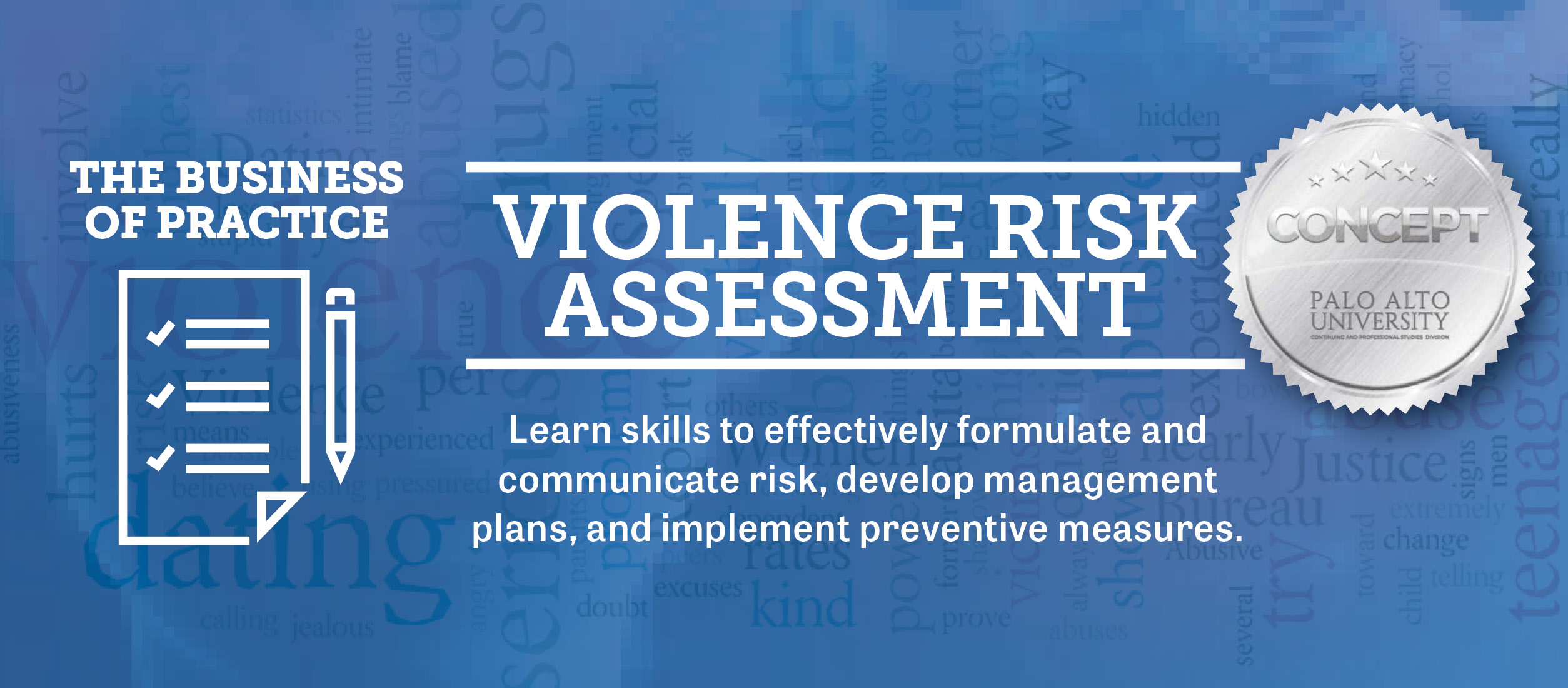What is Delusional Disorder?
Delusional Disorder is a psychiatric illness that afflicts a very small percentage of the population. According to the DSM-5-TR, the best estimate
What are the Different Types of Clinical Psychologists?
Clinical psychology is a broad field with many areas of specialization. This article describes a few of the most common areas of specialization for
What Types of Careers are Available in Psychology and Law?
This article summarizes the types of subspecialties available to those interested in careers in psychology and law.
Violence Risk Assessment Case Study: Dangerousness Evaluation Using the HCR-20-V3
Forensic reports take various formats. Below is an example of some of the relevant details that would be included in the final evaluation report.
Violence Risk Assessment Case Study: Dangerousness Evaluation using the START
Forensic reports take various formats. Below is an example of some of the relevant details that would be included in the final evaluation report.
Intimate Partner Violence (SARA-V3 & B-SAFER-2)
Intimate Partner Violence (IPV), sometimes referred to as spousal assault, partner assault, spousal violence, and domestic violence—is the actual,
General Violence Risk : A Strength-Based Approach
Violence is when… A person engaged in an act (or omission) with some degree of willfulness that caused or had the potential to cause physical or
Stalking Assessment & Management (SAM)
Despite its nebulous nature and varied legal and clinical definitions, researchers and clinicians are referring to the same phenomenon when they use
Sexual Violence (RSVP-V2 & SVR-20-V2)
Sexual violence is truly a public matter of legitimate concern, and it must be addressed comprehensively.
Juvenile General Violence Risk Assessments
Adolescent violence risk assessment research emerged in the late 1990s and early 2000s. Since then, many measures for assessing violence and
Violence Risk Assessment - From Certificate to Career
The public, credentialing organizations, the legal system, school systems, and various other stakeholders expect and need mental health and legal
Overview of the Violence Risk Assessment Certificate
This certificate aims to enhance professional decision-making associated with violence risk and learn skills to effectively formulate and communicate































